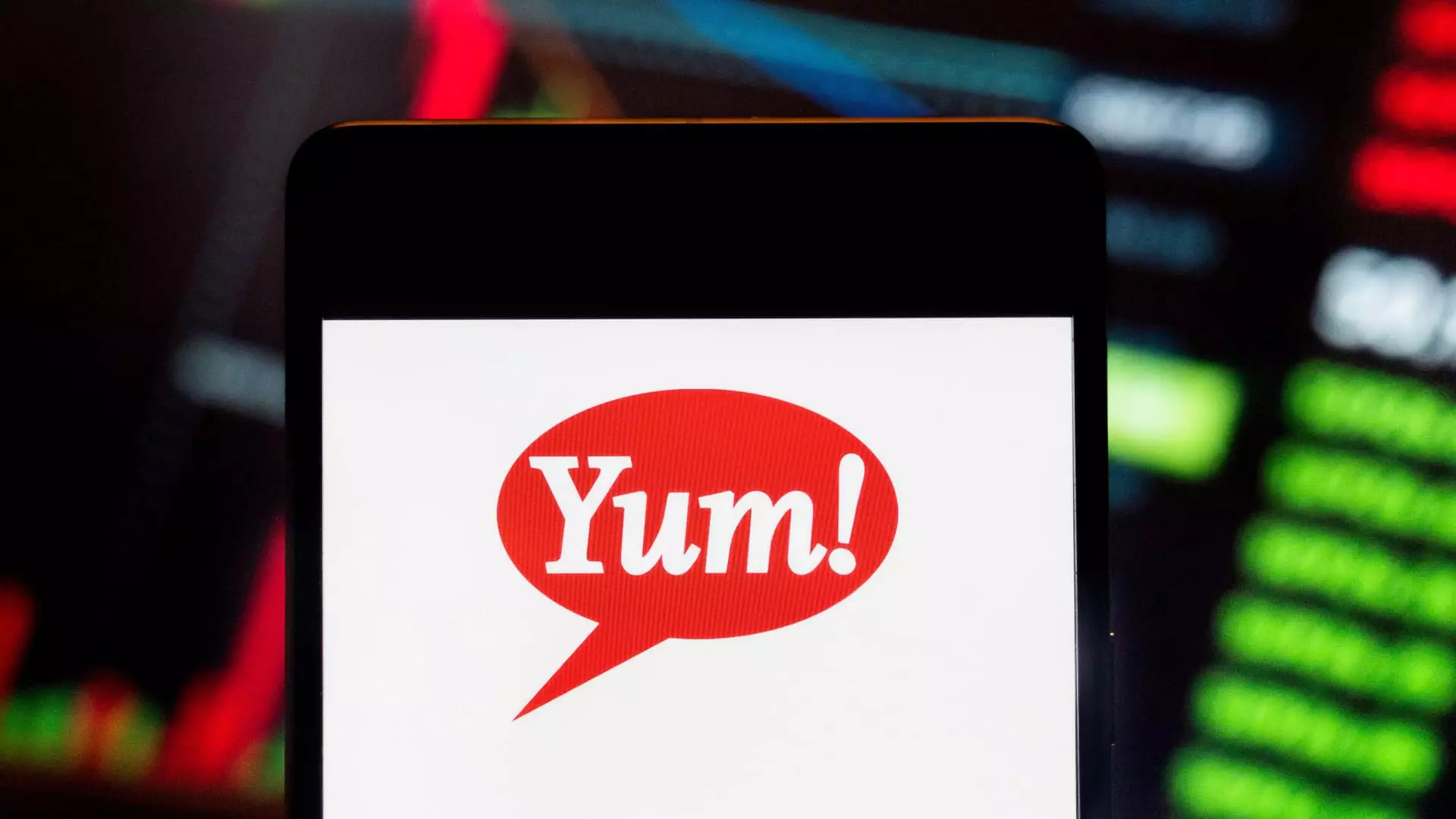Yum Brands has recently released its quarterly earnings report, revealing a concerning trend in its financial performance. The fast-food conglomerate’s earnings and revenue figures fell short of analysts’ expectations, indicating that the company is navigating through turbulent waters. During a conference call with stakeholders, CEO David Gibbs highlighted a complex consumer environment as a significant factor leading to varying regional sales performances. This complexity has ultimately impacted the company’s overall growth trajectory, falling below the ambitious long-term targets set last year. Yum Brands aimed for a 5% increase in unit growth, a 7% boost in system sales, and an 8% rise in operating profit, but current results suggest that these benchmarks are increasingly difficult to meet.
The figures for Yum Brands are telling. The company reported earnings per share of $1.37, which is below the anticipated $1.41. Revenue reached $1.83 billion, again falling short of the $1.90 billion that analysts had predicted. This decline in financial metrics is particularly significant considering that Yum Brands reported a net income of $382 million for the quarter, a drop from $416 million in the same period last year. The company’s net sales did manage a modest rise of 7%, yet the overall sentiment remains dampened, resonating throughout the financial community.
A particularly alarming aspect of Yum Brands’ report is the decline in same-store sales, which fell by 2% globally. The flagship brands, KFC and Pizza Hut, both experienced severe setbacks. KFC saw same-store sales drop by 4%, while Pizza Hut’s international markets suffered even more, with a staggering 6% decline. Factors contributing to these outcomes include increasing political conflicts and a challenging consumer sentiment atmosphere, especially in regions like the Middle East, which has significantly pressed KFC’s sales numbers down by as much as 45% in some markets such as Indonesia and Malaysia. In the U.S., KFC’s huge market share has also been compromised, with competitors like Popeyes gaining ground.
In light of these challenges, Yum Brands is adjusting its strategies. The company has committed to focusing on value offerings, particularly at KFC, to recapture lost customers and improve sales figures. This pivot is especially critical as KFC grapples with its decreased market share and aims to reestablish its prominence in a fiercely competitive landscape. On the other hand, Pizza Hut is also adapting by providing more discounts in various international markets, including China and India. This approach aims to tantalize budget-conscious consumers while stimulating sales performance in a slumping market.
Despite the overall struggle, Taco Bell holds a contrasting narrative. The brand reported a strong 4% growth in same-store sales, marking it as a standout within Yum’s portfolio. Innovations such as the introduction of Cheesy Street Chalupas and a $7 value meal appear to resonate well with consumers, enabling Taco Bell to ascend as a leader in value perception amid a broader industry slowdown. CEO Gibbs emphasized Taco Bell’s exceptional performance, which drives not only sales but also enhances brand loyalty among fast-food consumers.
The quarterly results from Yum Brands paint a complex picture of a company facing considerable hurdles that stem from both external economic conditions and internal market competition. As KFC and Pizza Hut strive to regain their footing, Taco Bell shines as a beacon of success for the portfolio. The path ahead will undoubtedly require strategic adaptations, innovative offerings, and a strengthened commitment to customer value. As Yum Brands continues to explore solutions to these mounting challenges, its ability to navigate the current landscape will be crucial for sustaining long-term growth and stability.

